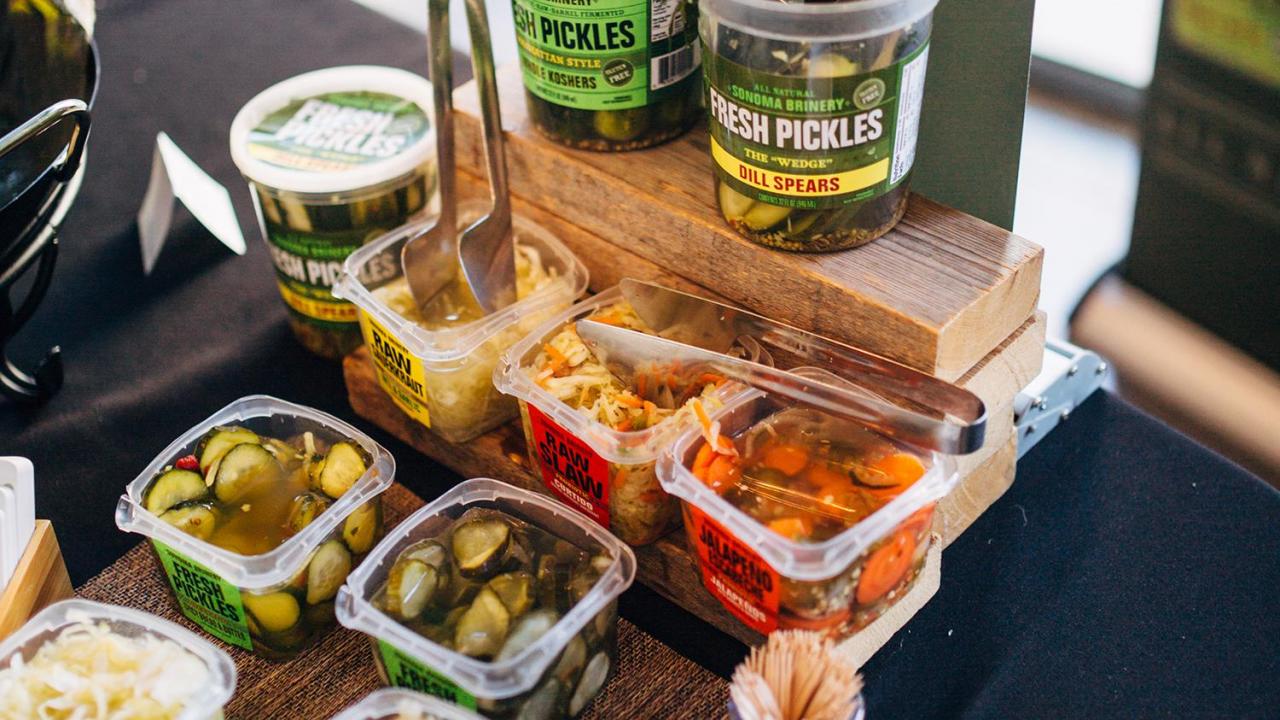
Fermentation Inspiration
A student's take:
I think fermentation is amazing. Majoring in viticulture and enology, I hear about the process of fermentation in my classes almost every single day. After all, without fermentation, we would not have wine. However, fermentation impacts more than the process of winemaking; it is used in beer, pickles, cheese, yogurt, kombucha, and so many other foods. When I was tasked with writing about the Robert Mondavi Institute’s forum Surprising Superfoods: The Science of Fermented Foods, I was undeniably thrilled to spend 85 minutes learning more about the science of fermentation and its role in food from UC Davis professor and microbiologist Dr. Maria Marco and Sonoma Brinery founder David Ehreth.
This event illustrated the vital connection between research and society, between academia and industry. By showcasing a microbiological researcher and a self-proclaimed “bacteria farmer,” the event juxtaposed two people working in the same industry of fermented foods while highlighting their symbiotic relationship—no science pun intended!
Both speakers were encouraged by their own childhood experiences, which catalyzed their future in fermented foods. For Marco, it was her grandmother’s teachings that inspired her to research fermentation. Passionate about educating the next generation, she now passes down her knowledge by working as a professor and by sharing her research with the world. For Ehreth, it was his visits to New York City shops to buy fresh pickles with his dad that motivated him to one day found his own brinery and produce fresh, handmade pickles and sauerkraut. He implements his knowledge to create delicious foods that the average consumer can afford. As a college student, I really appreciate this!
After listening to this forum, I was convinced to start incorporating more fermented foods into my diet. Fermentation provides prolonged shelf lives by preserving perishable foods. It also increases food’s probiotic levels and digestibility while decreasing the levels of toxic compounds and antinutrients. There is promising research suggesting the healthfulness of fermented foods.
I’m not going to try to persuade you to start incorporating more fermented foods in your diet by listing all of the research or data, but I think you will be thoroughly convinced once you watch the forum—I know I was!
If you’re inspired like me, it is important to know that fermenting food is something that can be done at home! Marco emphasized the need for more education in order to assure that the fermentation is being done safely, and I think she should definitely teach a class on this (hint hint, UC Davis registrar). Or, if you don’t want to put in the work at home, there are people like Ehreth, an engineer-turned-pickler, who will put in the work for you and create something that tastes great for a great price.
I can safely say that I now will never take a slice of cheese, a pickle, or any other fermented food for granted thanks to Dr. Maria Marco and David Ehreth!

Kendal Koorenny is a senior at UC Davis, where she is majoring in viticulture and enology and minoring in professional writing. She adores food, wine, and science and writing about it all! When she is not in class or working, you can find Kendal reading a book or in her kitchen crafting a new cocktail recipe.
